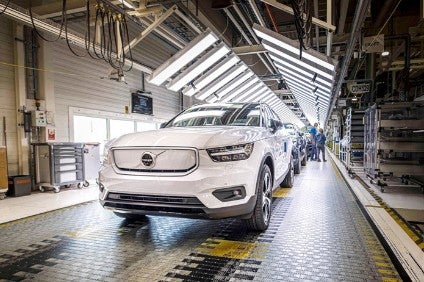
Sales of imported light passenger vehicles in South Korea dropped by a further 10% to 23,070 units in April 2022 from 25,578 a year earlier, according to registration data released by the Korea Automobile Importers & Distributors Association (KAIDA).
This followed a 14% decline in the first quarter of the year, as the ongoing shortage of semiconductors continued to affect vehicle production worldwide.

Discover B2B Marketing That Performs
Combine business intelligence and editorial excellence to reach engaged professionals across 36 leading media platforms.
Sales by domestic manufacturers also fell at a similar rate last month to 119,628 units.
The three best-selling imported models in April were the Mercedes-Benz E 350 4MATIC and C 300 sedans and the BMW 520.
Import sales were down 13% at 84,802 units in the first four months of 2022 from 97,486 a year earlier with German brands accounting for almost 79% of the total, or 66,864 units.
Mercedes-Benz reported a 7% decline in cumulative four month sales to 25,694 units, helped by the launch of the battery powered EQS at the end of last year which it now sells alongside the EQA and EQC EV models. The automaker said it plans to launch four new models in South Korea this year, including the C-Class, the battery-powered EQE sedan, the EQB electric SUV and the AMG EQS 53 4MATIC sedan, as well as upgraded CLS four-door coupe and AMG GT-4 coupe models.
BMW sales increased 5% to 24,701 units year-to-date, lifted by the launch of the iX1 and iX3 battery-powered SUVs at the end of last year, while Mini sales fell 7% to 3,603 units.
Volkswagen four month sales fell 26% to 4,221 units while Audi sales plunged 46% to 4,702 units and Porsche sales were down 6% at 3,323 units, as the group struggled to source enough chip supplies.
The group’s recently renamed local distributor, Volkswagen Group Korea, said it planned to launch 22 new and upgraded models across all its brands this year to help reverse the recent decline, including the VW ID.4 electric SUV, the Audi Q4 e-tron and the A3 compact, along with several Bentley and Lamborghini models.
Volvo passenger vehicles sales fell by 4.5% to 4,692 units year to date. The automaker launched the C40 Recharge EV in February, the first of seven EVs it planned to launch by 2030.
The association did not cover Tesla sales which were reported separately to have increased by 50% to 17,800 units last year, making it the country’s largest EV importer.






